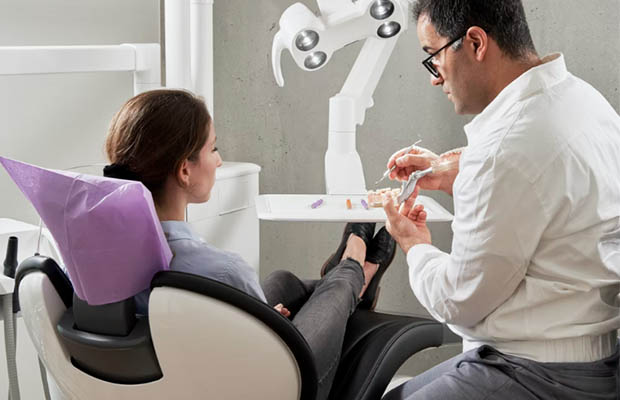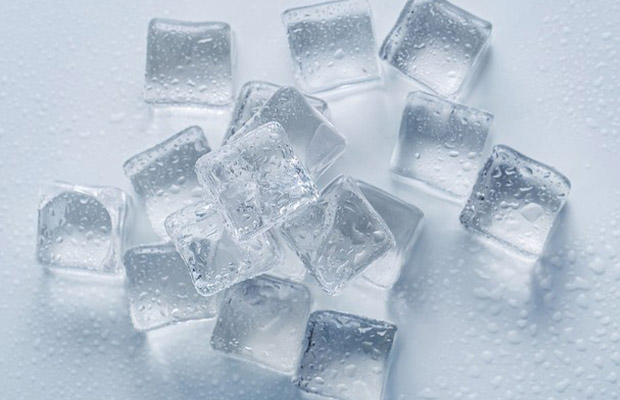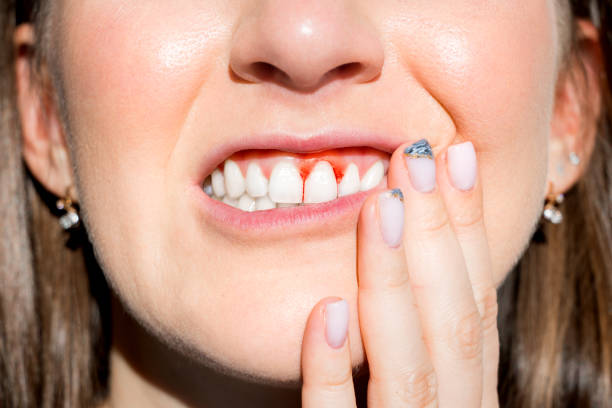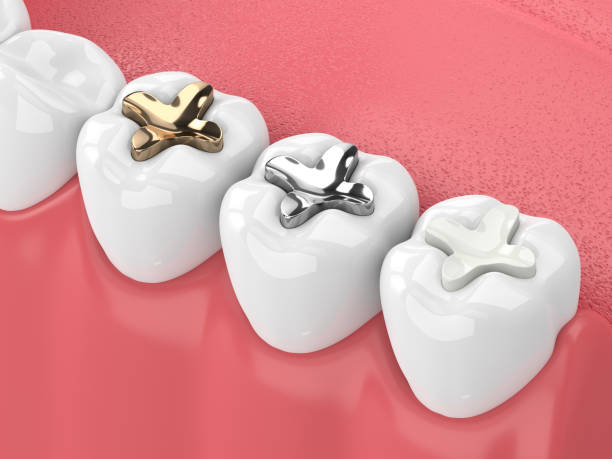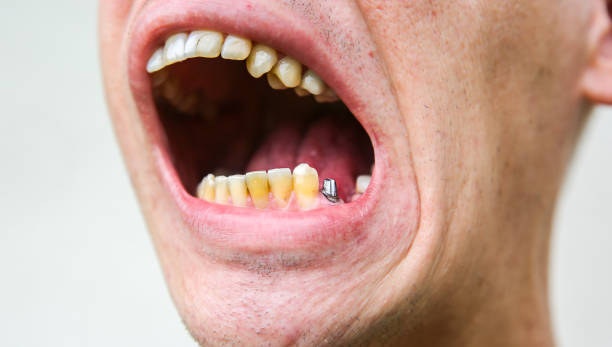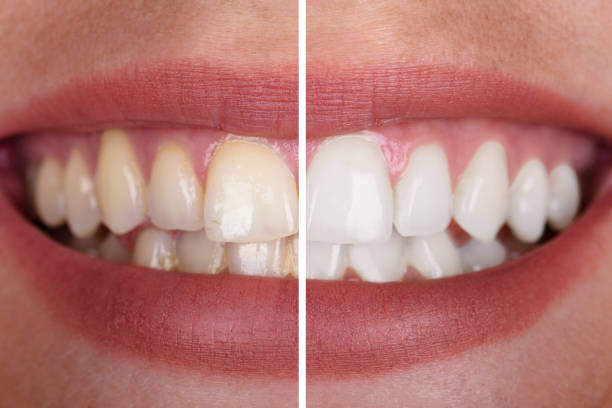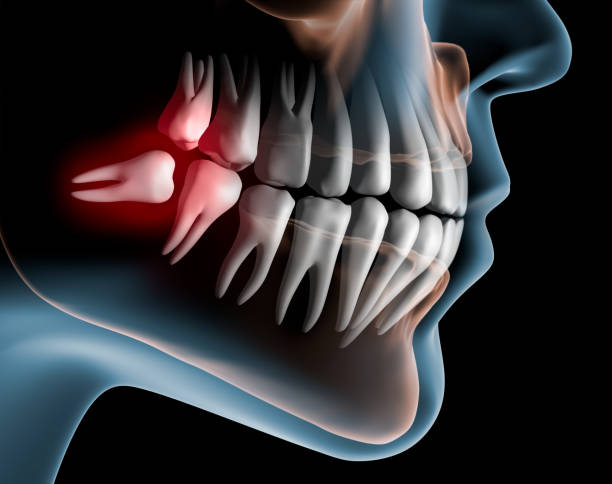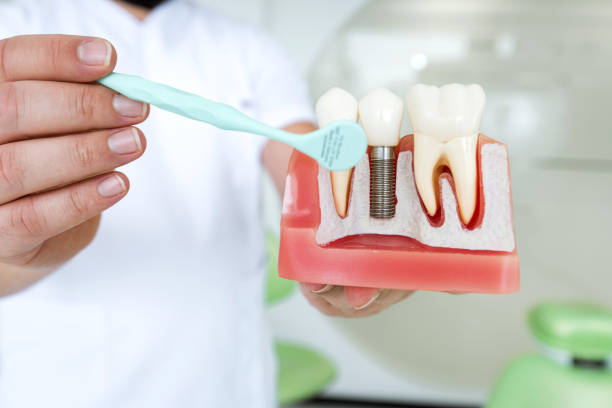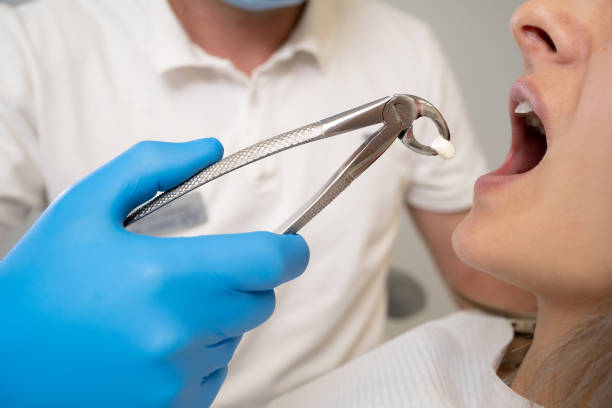It can be extremely painful to experience a toothache during the day. An entirely new level of misery can result from a toothache at night. What to do if we are having extreme tooth pain and even can’t sleep?
When you finally manage to get some sleep so that you can make it to the dentist the following morning, our dentists will advise you on the best ways to temporarily relieve your tooth pain. Fortunately, you can find many home remedies for toothaches to get relief quickly. Additionally, we’ll discuss all of the contributing factors and how to stop them from happening in the future.
Table of Contents
Extreme Tooth Pain: How Bad Is It?
This kind of tooth pain is not your typical type of pain that is only marginally annoying or irritating. We are referring to a severe toothache that keeps you up at night. You literally cannot try to ignore it or even try to sleep it off because it will keep you from falling asleep. In fact, if you try to fall asleep, you will be awakened again in a few minutes. Everyone who has this toothache won’t be able to sleep for even a minute.
On the scale of pain, it will feel like a 10 out of 10. It might throb constantly or it might appear and disappear sporadically with no apparent cause. When the pain does materialize, it will feel abrupt and sharp. Because it usually hurts more severely, it won’t feel like a dull ache. What a tooth feels like when it needs a root canal is this excruciating toothache.
How to Relieve The Pain And Get Some Sleep
This is a temporary solution that will enable you to get some rest by reducing the tooth pain just enough so that you won’t wake up in the middle of the night. Since only your dentist is capable of doing that, the pain won’t be completely gone and won’t be permanently cured.
Take a combination of pain medication
Ibuprofen or acetaminophen by themselves are ineffective for treating severe tooth pain; you must take them both at the same time. This study showed that when 400 mg of ibuprofen is taken together with 1000 mg of acetaminophen had a superior effect to taking either of them alone or even when they are combined with codeine.
Another study showed that the effects of that combination were equivalent to traditional narcotics such as oxycodone and hydrocodone. In other words, when taken together, it is a very powerful painkiller.
Use a cold compress
By temporarily numbing the painful area with cold, applying an ice pack to the affected side of your face can help relieve some pressure. The potential swelling may be slightly reduced by the cold. The cold compress can be used for 15 minutes on and 15 minutes off. As often as necessary, repeat.
Maintain good oral hygiene
The number of potential bacteria or food that may be causing the pain can be decreased by keeping your mouth and teeth as clean as possible, depending on what is causing the toothache. As a result, you must brush your teeth for two minutes before flossing. You should also use a gentle mouse rinse such as salt water because anything acidic may aggravate the pain. Listerine and hydrogen peroxide are two examples of acidic rinses to avoid.
Alternatively, you can also use coconut oil for oil pulling. For the oil to be effective, you would need to swish it around your mouth for about 15-20 minutes. Because of its pH neutrality, coconut oil is gentle.
Elevate your head
Perhaps you’ve noticed that when you’re lying down, the pain is worse. The cause is that when you’re lying flat on your bed, blood will rush to your head and mouth, adding to the pressure on an already sore area. You should elevate your head with additional pillows to relieve this added pressure and prevent blood from pooling around your head.
That explains why the toothache does not hurt as much when you are standing up because gravity helps to draw the blood away from your tooth.
Other home remedies that are less effective
You can try other treatments, but they won’t be as successful as the four mentioned above. Under normal conditions, such as with a mild toothache, these may provide some pain relief, but not much in the case of a severe toothache.
- Clove oil. This oil may have anti-inflammatory and local anesthetic properties that can ease a severe toothache. However, the oil won’t be able to reach the tooth nerve if your pain is coming from the tooth itself. Consequently, it is not very efficient.
- Garlic. When consumed in sufficient amounts, this food does indeed have antibacterial qualities. Additionally, when consumed raw, it works better. However, a severe toothache won’t be helped by this; only a minor one.
- Peppermint tea. In some cases, especially if you have a gum problem, placing a tea bag over the painful tooth can provide pain relief. Tea may not be able to penetrate the enamel to relieve tooth pain if it is coming from the tooth.
- Hydrogen peroxide rinse. Using an acidic rinse, such as hydrogen peroxide, may exacerbate a tooth that is already very painful. It is advised to rinse with more care. Hydrogen peroxide works well to eliminate oral bacteria under typical conditions.
What Can Keep You Awake At Night Due to Extreme Tooth Pain?
A small cavity would never have the potential to wake you up from sleep, so any pain that can do that must be a very serious dental issue. There are four ailments that could keep you awake at night with their potential to cause you excruciating pain.
Large cavity
When tooth decay is left untreated, it can develop into a large cavity that could damage the nerve. Once the decay has reached the nerve, you will suffer from excruciating tooth pain, unlike anything you have ever experienced. Going for your twice-yearly dental exams is crucial so that you can treat any cavities while they’re still small because this process could take years to manifest.
Nerve Infection
Even in cases where there isn’t any tooth decay, the nerve can occasionally get infected and experience severe inflammation. When the tooth’s nerve is so inflamed that it starts to hurt you on its own without any external triggers, this condition is known as irreversible pulpitis. It explains why you might experience pain while attempting to fall asleep even if you aren’t eating anything or deliberately agitating the tooth.
Tooth abscess
A severe facial swelling brought on by a dental abscess can be extremely painful and challenging to ignore. In fact, the swelling may worsen at a startling rate, resulting in a split in the appearance of your face’s halves. Due to a potential side effect of swelling, and breathing difficulties, this condition is actually very dangerous and may be fatal. We advise you to head straight to the emergency room at the hospital that is closest to you.
Fractured tooth
The last thing you need is a broken tooth to keep you awake at night. Consider how painful it would be if your tooth were to split in half. When your tooth is physically visible as being split in half, it can be obvious in some cases, but when the crack is internal, it may not be as obvious. In that case, even though you couldn’t see it, you would still feel the pain it was causing.
Other conditions that may cause you mild to moderate pain
Other dental issues may give you mild to moderate pain, but not enough to keep you from going to sleep.
- Sinusitis. Your sinus is very close to the roots of some of your top teeth, so if it becomes inflamed, you may experience tooth pain.
- Teeth grinding. A lot of pressure can be placed on the tooth and its ligaments if you grind your teeth at night. As a result, when you wake up in the morning, your teeth and jaw may feel sore. Stress is a common contributor to the condition, and some individuals choose to express their stress by grinding their teeth while they sleep.
- TMJ disorder. When you open and close your jaw, clicking sounds may occur if you have TMJ issues. This may also result in teeth clenching, which strains your mouth.
- Gum recession. The more sensitive root surface of your tooth is exposed when your gums recede. Since the gums typically cover it, it is delicate and not accustomed to a lot of external stimulation. Since they have retreated, it is now exposed and vulnerable to extremes of heat and cold. Cold water and iced beverages are typically not preferred by those who have this condition.
- Late night meals. If you don’t brush and floss your teeth after eating something sweet late at night, you risk aggravating any oral cavities you already have. Old, potentially leaky dental fillings will also start to feel sensitive. Once the sweet touch the filling, you’ll feel a strong zing.
These conditions aren’t as serious and you most likely don’t have to see your dentist the next day nor do you need to follow the pain medication protocol above. Although it is urgent but not an emergency, we do advise that you try to visit your dentist as soon as possible.
Main Reasons for Toothache Pain
- The primary cause of toothaches is old tooth decay. The dentin, the tooth’s inner layer, would need to be sufficiently decayed for it to be affected. Cavities form and the tooth becomes extremely sensitive when the dentin is damaged.
- If the pain is more of a dull ache, then the decay has not gotten to the center of the tooth. However, if the pain is severe, you should seek medical attention as soon as you can because, if left untreated, this could result in even more serious issues.
- Gum disease is another reason you might be feeling pain. You should seek medical attention right away if you have dull pain and your gums are red and bleeding because you may have gum disease.
- Discomfort may be brought on by tooth fractures. A tooth can be broken in a variety of ways, including forcefully biting down on something or by an external impact. If a broken tooth is hurting you, it’s because the fracture has spread to the center of the tooth and is now pressing against nerve endings, which would undoubtedly be unbearably painful. It could occur right away after the tooth is damaged, but it could also happen much later as the damage worsens. Definitely, a reason to visit your dentist and fix it before the situation gets worse.
- Eating or drinking something that is extremely hot or cold can also hurt. Your teeth’s sensitivity is typically the cause of this. This is most likely a result of the enamel on your teeth being worn down, exposing the layer of the tooth that houses the nerves. Additionally, it might take place soon after having your teeth whitened. To protect the nerves from extremely high or low temperatures, try using toothpaste for sensitive teeth.
- When dental fillings breaking, delicate areas of your teeth are left bare and vulnerable to damage from things like bacteria, extreme temperatures, and food particles. Pain ranging from dull to sharp can result from this. An imperfect filling needs to be fixed right away.
- Tooth pain is frequently brought on by bruxism, also known as teeth grinding. Teeth grinding is a symptom of stress, but some people also do it as a sleep habit. Wearing a mouth guard while you sleep is the best way to protect yourself from teeth grinding. It is advised to have a mouth guard made especially for you by your dentist.
- Gums can become inflamed, irritated, and bleeding if you brush your teeth too vigorously and floss firmly.
- Repeatedly doing this causes the gums to recede, making the teeth more unstable and potentially causing pain to worsen.
How Can I Stop It from Happening Again?
It’s too late once you have a severe toothache, but the good news is that you can take steps to avoid similar situations in the future.
- A dental check-up every 6 months. Your dentist will be able to spot issues while they’re still small if you visit for checkups and cleanings on a regular basis. Simple fixes are needed for small issues. Treating minor issues as soon as you can serves your best interests in preventing larger issues, such as severe toothache.
- Maintain impeccable oral hygiene. Since you only visit the dentist twice a year, it is entirely your responsibility to maintain the cleanliness of your teeth every day. Be diligent because only you can brush them twice daily and floss before bed. Keeping your teeth and gums healthy is important.
- Minimize sugar intake. When bacteria break down the sugar in your mouth, they produce acids that result in cavities, which are the beginnings of tooth decay. Simply eating less sugar and carbohydrates will provide the bacteria with less fuel. Your risk of developing cavities and, as a result, experiencing excruciating tooth pain, is reduced as a result.

